Prednisolone Dispersible Tablets for Dogs: Dosage, Administration, and Effective Treatment
When it comes to treating inflammation and managing chronic conditions in dogs, Prednisolone Dispersible Tablets play a crucial role. This corticosteroid medication is widely prescribed by veterinarians for a variety of conditions, from allergies to arthritis. As a pet owner, understanding how this medication works, its benefits, and the potential side effects is essential for ensuring your dog’s health and well-being.
What Are Prednisolone Dispersible Tablets?
Prednisolone is a corticosteroid used to reduce inflammation and suppress the immune system in both humans and animals. When prescribed in tablet form, it is often used to treat conditions where inflammation plays a central role.
Dispersible tablets are specially formulated so they can be dissolved in water, making them easy to administer to pets that have difficulty swallowing pills.
Key Characteristics:
- Anti-inflammatory: Reduces swelling and inflammation.
- Immunosuppressive: Suppresses the immune system’s activity, making it useful in managing autoimmune diseases.
- Easily Dispersible: Can be dissolved in water for easy administration to pets.
Indications for Prednisolone Dispersible Tablets in Dogs
Prednisolone Dispersible Tablets are used for a range of conditions that involve inflammation and immune system dysfunction in dogs. Here are the primary indications:
1. Allergies
Dogs with allergic reactions often experience inflammation in the skin, respiratory system, or digestive tract. Prednisolone is used to control symptoms of:
- Seasonal allergies
- Food allergies
- Contact dermatitis
- Atopic dermatitis (chronic skin inflammation)
2. Arthritis and Joint Inflammation
Chronic conditions like osteoarthritis or rheumatoid arthritis lead to painful inflammation in joints.
3. Autoimmune Diseases
Dogs with autoimmune conditions, where the immune system mistakenly attacks the body’s own cells, benefit from Prednisolone’s ability to suppress immune response. Common conditions include:
- Systemic lupus erythematosus (SLE)
- Immune-mediated hemolytic anemia (IMHA)
- Immune-mediated thrombocytopenia (IMT)
4. Skin Disorders
Conditions like hot spots, eczema, and skin infections caused by inflammation can be managed with Prednisolone. It reduces the redness, swelling, and itching that accompany these issues.
5. Inflammatory Bowel Disease (IBD)
Prednisolone can help control flare-ups by reducing the inflammation in the gut lining.
6. Respiratory Conditions
Prednisolone is effective in treating inflammatory respiratory diseases, such as bronchitis or tracheitis, by reducing inflammation in the airways, helping your dog breathe more easily.
7. Cancer Treatment Support
In some cases, Prednisolone is used as an adjunct treatment for dogs with cancer to control inflammation, reduce pain, and support appetite during chemotherapy.
How Prednisolone Dispersible Tablets Work in Dogs
Prednisolone works by mimicking the effects of natural corticosteroids, which are hormones produced by the adrenal glands. These hormones are responsible for regulating the body’s response to stress and inflammation.
By binding to corticosteroid receptors in cells, Prednisolone reduces the production of prostaglandins, chemicals that cause inflammation. This action helps alleviate pain, swelling, and tissue damage.
Benefits of Prednisolone Dispersible Tablets for Dogs:
- Effective Anti-inflammatory Action
- Prednisolone helps reduce inflammation quickly, providing relief for conditions like arthritis, allergic reactions, and other inflammatory disorders.
- Symptom Relief in Autoimmune Diseases
- It can effectively manage symptoms of autoimmune diseases (e.g., immune-mediated hemolytic anemia), where the immune system attacks the body’s own cells.
- Treatment for Allergies and Skin Conditions
- Prednisolone is commonly used to treat allergic reactions and skin conditions like atopic dermatitis and hot spots, reducing itching and swelling.
- Improvement in Post-Surgical Recovery
- After surgeries or injuries, prednisolone helps in managing inflammation, reducing pain, and speeding up recovery by minimizing tissue swelling.
- Management of Endocrine Disorders
- It is effective in treating Addison’s disease (hypoadrenocorticism), where the body’s cortisol production is insufficient, by supplementing the low cortisol levels.
- Control of Respiratory and Eye Inflammation
- Used in conditions like conjunctivitis and uveitis (inflammation inside the eye), as well as asthma or bronchitis, it reduces swelling and helps improve breathing or vision.
- Supportive in Cancer Treatment
- As part of a broader treatment regimen, prednisolone helps manage cancer-related inflammation, reducing symptoms and improving the quality of life during chemotherapy or radiation therapy.
- Management of Chronic Inflammation
- Prednisolone is beneficial for chronic inflammatory conditions such as inflammatory bowel disease (IBD) or colitis, offering relief from ongoing discomfort.
- Improved Mobility and Pain Reduction
- In dogs with degenerative joint diseases (like arthritis), prednisolone helps reduce pain, stiffness, and improve mobility, allowing dogs to move more comfortably.
- Convenient Administration
- As a dispersible tablet, it can be easily mixed into food or water, making it easier to administer to dogs, even those that are picky eaters.
Administration and Dosage Recommendations for Prednisolone in Dogs
Determining the Correct Dosage
| Dog Weight | Initial Dosage | Maintenance Dosage |
| Small Dogs (<10 kg) | 1-2 mg/kg/day | half mg/kg every other day |
| Medium Dogs (10-20 kg) | 1 mg/kg/day | half mg/kg every other day |
| Large Dogs (>20 kg) | 0.5-1 mg/kg/day | half mg/kg every other day |
Administration Tips:
- Dispersible Tablets: These can be easily given by mixing them in the dog’s food or water since they dissolve quickly.
- Regular Monitoring: Regular checkups are essential, as prednisolone may cause side effects, especially with long-term use, such as weight gain, increased thirst, and increased urination.
- With or Without Food: While it’s often recommended to give steroids with food to avoid stomach upset, follow your veterinarian’s guidance on whether to administer the tablets with food or on an empty stomach.
Important Considerations:
- Gradual Reduction: Never stop administering prednisolone abruptly, especially after long-term use, as this may cause adverse effects due to adrenal suppression.
- Special Conditions: If your dog has pre-existing conditions like diabetes, kidney disease, or gastrointestinal problems, the dosage may be adjusted accordingly.
- Adjustments for Age or Health: Older dogs or those with compromised health may require a different dosage or frequency.
Side Effects of Prednisolone in Dogs
- Increased Thirst and Urination (Polyuria/Polydipsia)
- Common side effects of corticosteroids like prednisolone include increased thirst and excessive urination, which may lead to dehydration if not managed.
- Increased Appetite (Polyphagia)
- Dogs may exhibit a marked increase in hunger, which can lead to weight gain if not controlled.
- Weight Gain
- Along with increased appetite, long-term use can contribute to weight gain, as steroids can alter metabolism.
- Gastrointestinal Upset
- Prednisolone can cause nausea, vomiting, or diarrhea, especially if given on an empty stomach or in higher doses.
- Development of Cushing’s Disease (Hyperadrenocorticism)
- Prolonged use of prednisolone can suppress the dog’s natural cortisol production, leading to Cushing’s disease, which manifests as symptoms like excessive panting, hair loss, and a pot-bellied appearance.
- Weakened Immune System
- Steroids like prednisolone suppress the immune system, making dogs more susceptible to infections.
- Delayed Wound Healing
- Due to its immune-suppressing effects, prednisolone may slow down the healing process of cuts or wounds.
- Behavioral Changes
- Some dogs may experience mood changes, such as irritability, restlessness, or even aggression, particularly when on high doses.
- Muscle Weakness
- Long-term use of prednisolone can lead to muscle wasting or weakness, especially in older dogs.
- Liver Damage (in severe cases)
- Prolonged use of corticosteroids can sometimes lead to liver stress or damage, which is usually monitored through blood tests.
Precautions When Using Prednisolone in Dogs
- Tapering Dosage
- Prednisolone should not be stopped abruptly, as sudden withdrawal can lead to adrenal insufficiency (Addison’s disease-like symptoms). The dosage must be tapered down under veterinary guidance.
- Pre-existing Conditions
- Dogs with diabetes, kidney disease, or gastrointestinal issues may require special consideration when taking prednisolone.
- Monitor for Infections
- Since prednisolone suppresses the immune system, be vigilant for signs of infections, such as fever, lethargy, or unusual discharge.
- Caution in Pregnant or Lactating Dogs
- Prednisolone should only be used in pregnant or lactating dogs if absolutely necessary and under strict veterinary supervision.
- Watch for Signs of Overdose
- If a dog receives too high a dose of prednisolone, it may experience severe symptoms like vomiting, diarrhea, or even collapse.
- Regular Vet Check-ups
- Regular blood tests and check-ups are essential to monitor the dog’s overall health, especially the liver and kidneys, as well as to assess the dog’s response to the medication.
- Long-term Use Caution
- Prolonged use of prednisolone should be carefully monitored due to the risk of serious side effects like Cushing’s disease, diabetes, and muscle weakness.
When to Avoid Prednisolone
- Diabetic dogs: It can increase blood sugar levels.
- Pregnant dogs: Corticosteroids can interfere with pregnancy.
Clinical Data on Prednisolone Dispersible Tablets in Veterinary Medicine
Clinical research highlights its effectiveness in treating:
- Efficacy in Treating Conditions:
- Inflammation (arthritis, dermatitis) and autoimmune diseases (IMHA, ITP) are effectively managed with prednisolone. Studies show improvement in symptoms like pain, swelling, and mobility.
- Dosage and Long-Term Use:
- Short-term use is effective, but long-term use can lead to side effects like Cushing’s disease and muscle weakness.
- Cancer Treatment:
- Prednisolone helps improve quality of life in dogs with lymphoma by reducing inflammation and managing symptoms, although it’s not curative.
- Side Effects:
- Long-term use can also cause gastric ulcers, pancreatitis, and immune suppression.
- Dispersible Tablets:
- These tablets are easier to administer, especially for dogs that have trouble swallowing or are picky eaters.
- Combination Therapies:
- Often used with other immunosuppressive drugs or antibiotics, but can increase side effects like infections and liver issues.
Conclusion
Prednisolone Dispersible Tablets are a powerful and effective treatment for managing inflammation, immune-related disorders, and chronic conditions in dogs. Whether it’s used for allergies, arthritis, autoimmune diseases, or skin disorders, Prednisolone plays a vital role in providing relief and improving the quality of life for pets suffering from these conditions. While Prednisolone offers significant benefits, it’s important for pet owners to be aware of the potential side effects and always follow the prescribed dosage from a veterinarian. Long-term use requires careful monitoring to avoid complications such as Cushing’s syndrome or immunosuppression. By administering the medication correctly and adhering to your vet’s instructions, you can ensure your dog receives the maximum benefit with minimal risk.







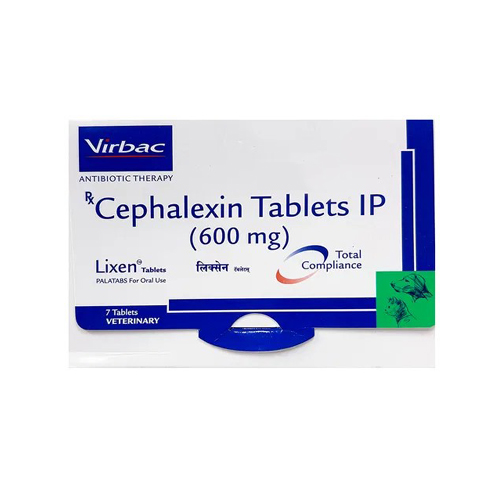
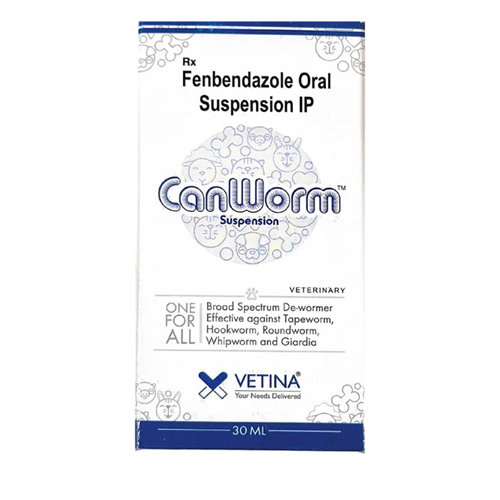



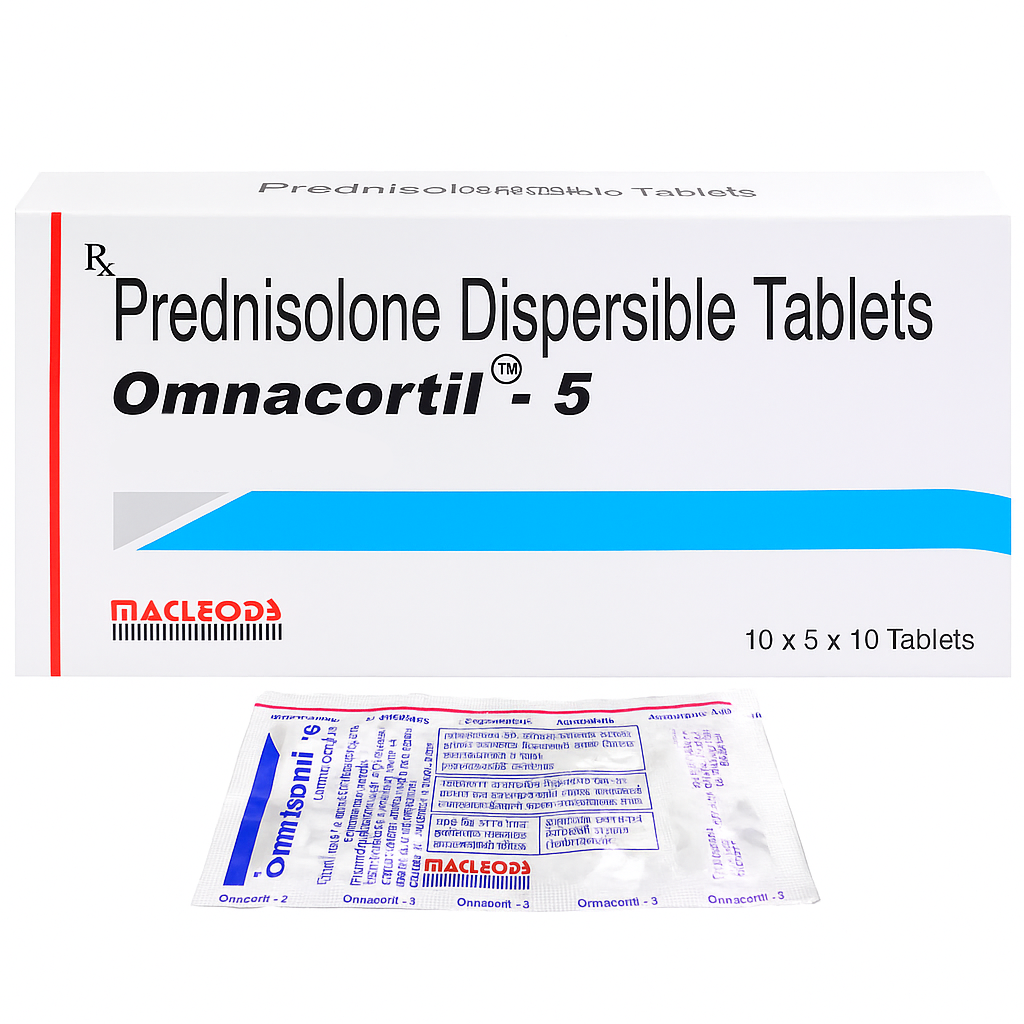
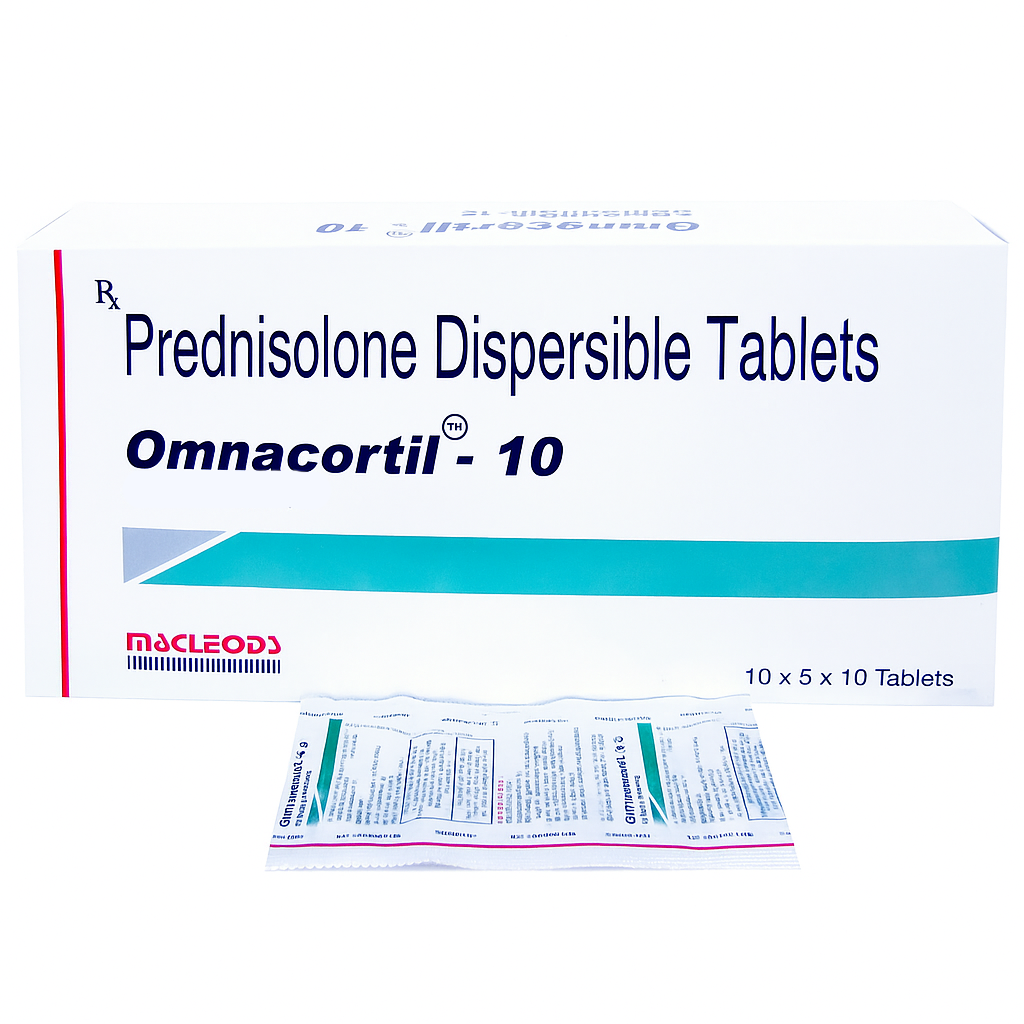
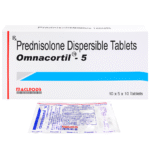
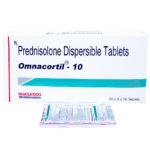
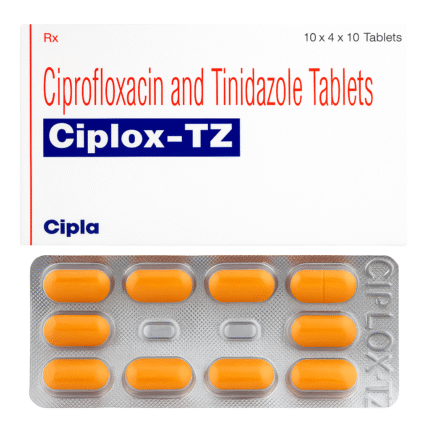
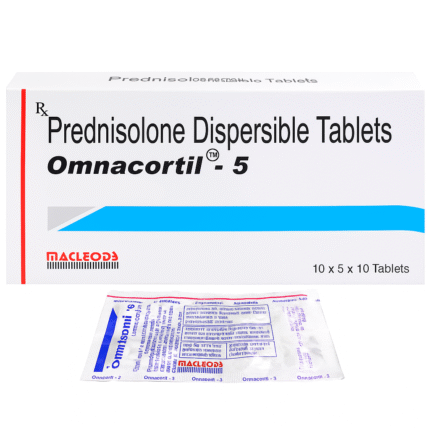
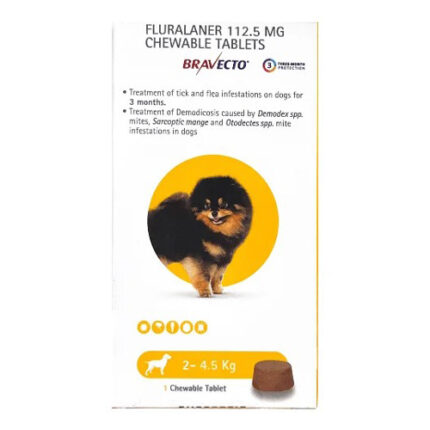
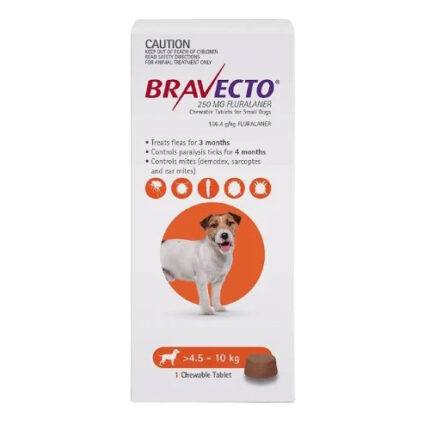
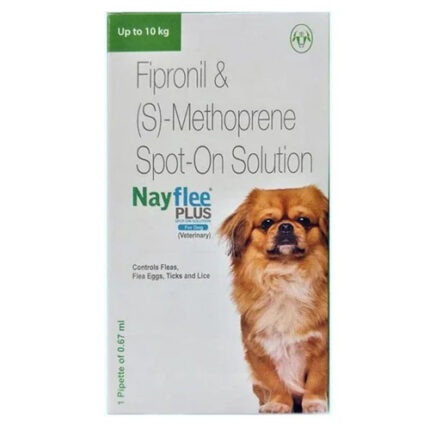
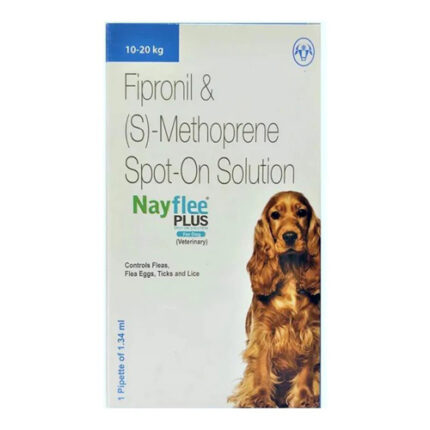
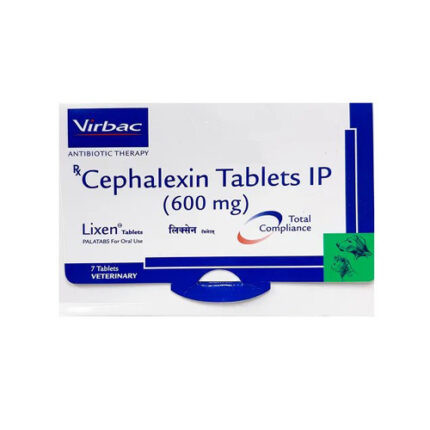
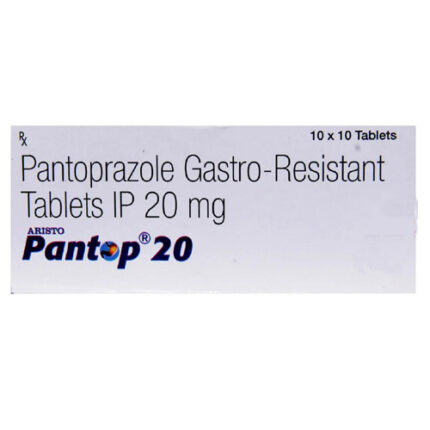
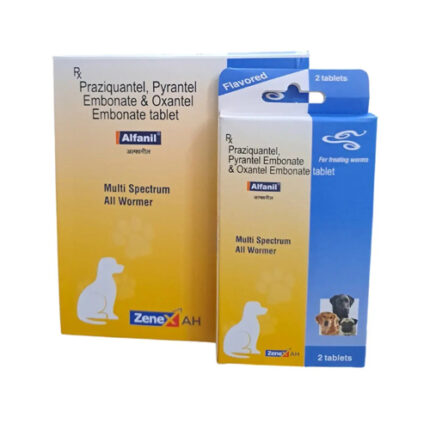

Reviews
There are no reviews yet.